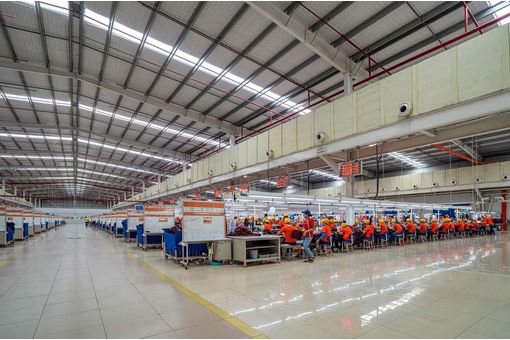BP unveils new technology to convert ethanol to ethylene
SaaBre’s breakthrough is a process for the conversion of synthesis gas (carbon monoxide and hydrogen derived from hydrocarbons such as natural gas) directly to acetic acid in a proprietary, integrated three-step process that avoids the need to purify carbon monoxide (CO) or purchase methanol.
SaaBre is expected to deliver a significant reduction in variable manufacturing costs, and lead to capital efficiencies, compared to the carbonylation of methanol route which has been the leading technology for several decades.
Acetic acid is a versatile intermediate chemical, used in a variety of products, such as paints, adhesives and solvents, as well as in the production of PTA, used extensively in polyester manufacture.
Nick Elmslie, Chief Executive of BP’s Global Petrochemicals business said: “SaaBre is the most significant development for acetic acid production in 40 years and adds to our portfolio of leading technologies.
“The principle advantages of SaaBre are that it eliminates the need to purify carbon monoxide, does not require the purchase of methanol and contains no iodides reducing the need for exotic metallurgy. We are excited about the development potential of this technology for the production of additional products such as methanol and ethanol.”
“BP has a long history of successfully optimising methanol carbonylation chemistry and the associated process, but we believe that methanol carbonylation has reached the limits of its fundamental chemistry,” says Dan Leonardi, Petrochemicals Technology Vice President. “So we decided some years ago that, to make a significant difference to the economics of manufacturing acetic acid at scale, we needed a fresh start.”
Hummingbirdis a newly developed proprietary process by which ethanol is dehydrated to produce ethylene, a fundamental building block for the plastics and other petrochemical industries. The new technology is lower cost and simpler compared to existing ethanol to ethylene technologies.
“Hummingbirdis a next generation technology, clearly differentiated from the competition,” said Charles Cameron, BP’s Head of Technology, Downstream. “The Hummingbirdprocess with its proprietary catalyst and its milder operating conditions is ultra-selective, resulting in a market leading conversion of ethanol to ethylene.”
Both SaaBre and Hummingbirdwere developed over a number of years at BP’s advanced laboratories at the Hull Research and Technology Centre (HRTC), alongside its acetic acid manufacturing site, Europe’s largest, at Saltend, Hull in the UK.
BP is actively exploring options for commercialising both technologies. SaaBre is planned for deployment in future acetic acid investments whilst Hummingbirdis a licensing play for BP.
“We see a considerable market for smaller-scale ethylene production where full-scale crackers would not be commercially viable,” said Mark Howard, Technology Vice President, Conversion. “These two new processes, developed in-house at Hull, show the significant value technology brings to our chemicals business.”
BP
































-Ltd..jpg?tr=w-120,h-60,c-at_max,cm-pad_resize,bg-ffffff)





.jpg?tr=w-120,h-60,c-at_max,cm-pad_resize,bg-ffffff)
.jpg?tr=w-120,h-60,c-at_max,cm-pad_resize,bg-ffffff)






